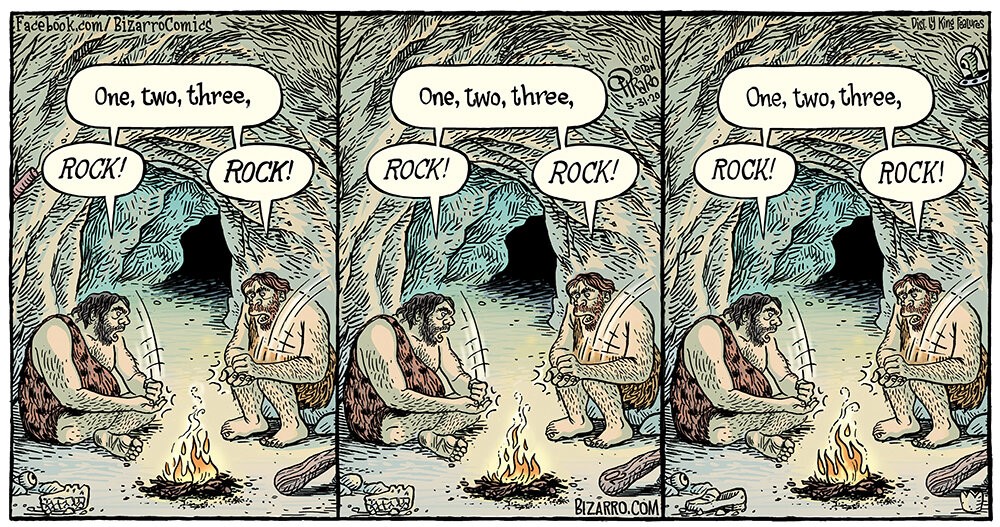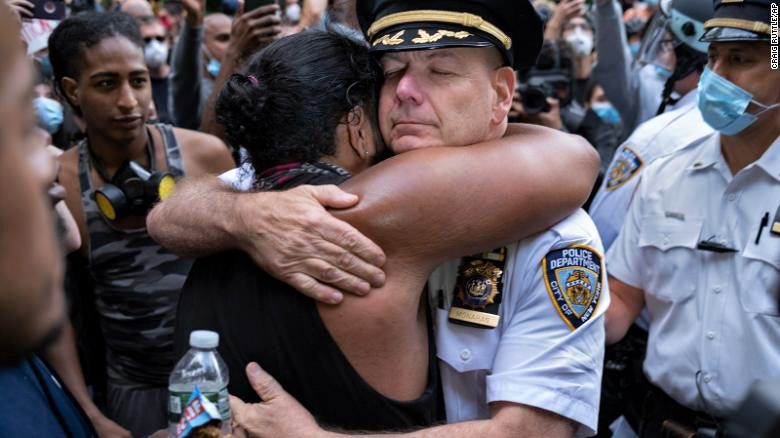This cartoon, from the wry and witty mind of Dan Piraro, could not be more timely.

Courtesy Dan Piraro — Bizarro.com
The first meaning suggests that we expect others to change rather than ourselves. However, a second meaning, Piraro says, “insinuates how we try the same failed things over and over, expecting the results to change.”
The cartoon is the visual equivalent of an expression presumed to have originated from Albert Einstein: “Insanity is doing the same thing over and over and expecting different results.”
Although Einstein did not author the phrase, the wisdom remains the same.
While we all want our lives to improve, sometimes we mistakenly believe that others around us should change, when in fact, we are responsible for changing our lives.
In a larger context, while we plead for social change we sometimes believe it is up to others to change the circumstances around us rather than making our own commitment. It’s easier to talk about change than to engage in it.
However, when Piraro’s second meaning is adopted by entire groups and society’s ills boil over, opposing factions devolve into “Us v. Them” confirming false beliefs and triggering the same kind of violence we’ve seen in the past.
Protesting the murder of George Floyd, dissidents rightly call out all three police officers involved. However, police protecting city streets, businesses, and churches from vandalism, are perceived as the enemy because they wear the same uniform – the same stereotyping protestors oppose. The result, police cars are burned, businesses looted, even churches are not spared destructive fires. The same violence we saw with Rodney King, Watts, Birmingham, Chicago and Charlotte. The same violence going back generations.
“When all men think alike, no one thinks very much,” journalist Walter Lippman said.
I am not suggesting that we stop peaceful protests. I am saying that each of us needs to do more.
When individuals change their reactions to a potential crisis, they become open to mutual respect and caring, and we learn from their example.
Police officers throughout the country have knelt with or hugged protestors in a show of respect and kindness. The image of a New York City police chief hugging a protestor speaks volumes.

Photo: Craig Rattle/AP
Watching these events unfold reminded me of a story told to me by Holocaust survivor Judy Meisel.
“An African American family by the name of Baker moved into an all-white neighborhood of Folcroft, Pennsylvania where I was living. A mob of people turned out taunting, screaming, yelling, throwing all kinds of debris.
“I was devastated because here I was in Philadelphia, in the city of brotherly love, and it was like Kristallnacht in 1938 when the world sat and looked at what was happening in Germany and nobody did anything about it!
“So, I baked some cookies and I went to the Bakers. I was called, ‘white trash,’ you name it, but I felt that if their homes were not safe, my home was not safe. If their rights are trampled on, my Jewish rights are trampled on.
“I was a Holocaust survivor, but I could not talk about it. I did not want to traumatize my children. But that incident with the Bakers made an incredible mark on me. I knew that I had to tell my story.
“Racism, bigotry, it’s still happening all over the world and we have to constantly work at it to see that this does not happen here or anywhere. We cannot afford to say, ‘What can I do, I’m only one person?’ One person can do a lot!”
Comments
Leave a Comment










Glad Jim, that your analytics show many people read your blog and I hope some can be braver and write a comment also.
Yes, we could bake cookies. Wish we could hug. Look someone in the eye and really LISTEN. Continue protesting all you want but stop the looting.